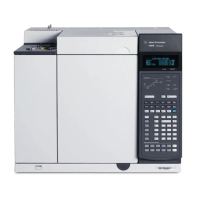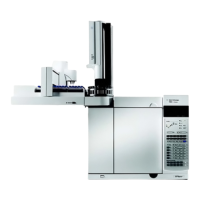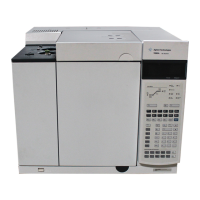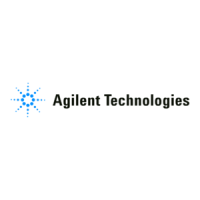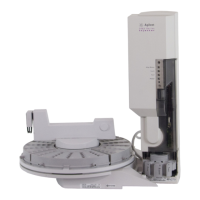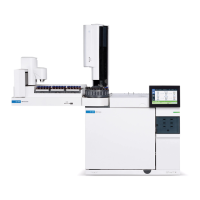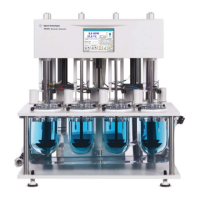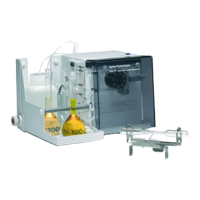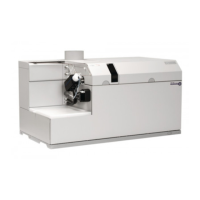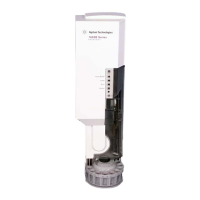80 Advanced User Guide
5 Detectors
µECD licenses
Customers in the United states can purchase an exempt model
µECD. Customers outside the United States should contact their
local Agilent sales office for information.
µECD warnings
Although beta particles at this energy level have little
penetrating power —the surface layer of the skin or a few sheets
of paper will stop most of them—they may be hazardous if the
isotope is ingested or inhaled. For this reason the cell must be
handled with care: Radioactive leak tests must be performed at
the required intervals (not applicable to exempt models), the
inlet and outlet fittings must be capped when the detector is not
in use, corrosive chemicals must not be introduced into the
detector, and the effluent from the detector must be vented
outside the laboratory environment.
• After turning off the main power and allowing the
instrument to cool, cap the detector inlet and exhaust vent
openings. Wear disposable plastic gloves and observe normal
laboratory safety precautions.
• Return the cell for exchange, following directions included
with the License Verification Form (part no. 19233-90750).
• Include a letter stating the condition of abuse.
WARNING
Materials that may react with the
63
Ni source, either to form
volatile products or to cause physical degradation of the plated
film, must be avoided. These materials include oxidizing
compounds, acids, wet halogens, wet nitric acid, ammonium
hydroxide, hydrogen sulfide, PCBs, and carbon monoxide. This list
is not exhaustive but indicates the kinds of compounds that may
cause damage to
63
Ni detectors.
WARNING
In the extremely unlikely event that both the oven and the detector
heated zone should go into thermal runaway (maximum,
uncontrolled heating in excess of 400 °C) at the same time, and
that the detector remains exposed to this condition for more than
12 hours, take the following steps:
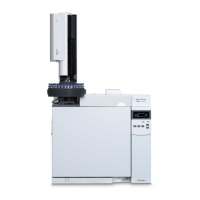
